ScheduleA series of operation from one transaction to another transaction is known as schedule. It is used to preserve the order of the operation in each of the individual transaction. 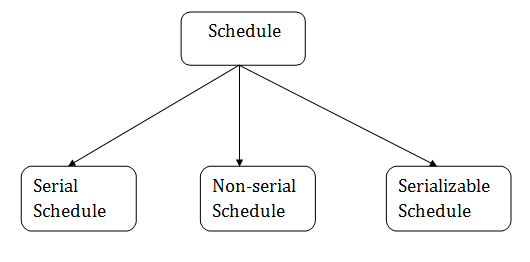
1. Serial ScheduleThe serial schedule is a type of schedule where one transaction is executed completely before starting another transaction. In the serial schedule, when the first transaction completes its cycle, then the next transaction is executed. For example: Suppose there are two transactions T1 and T2 which have some operations. If it has no interleaving of operations, then there are the following two possible outcomes:
2. Non-serial Schedule
3. Serializable schedule
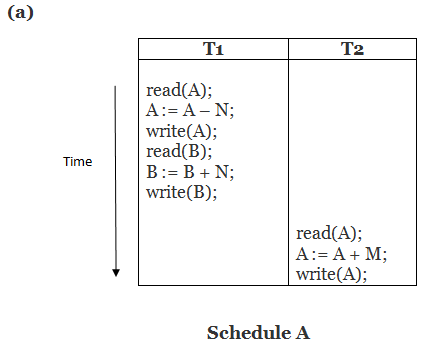
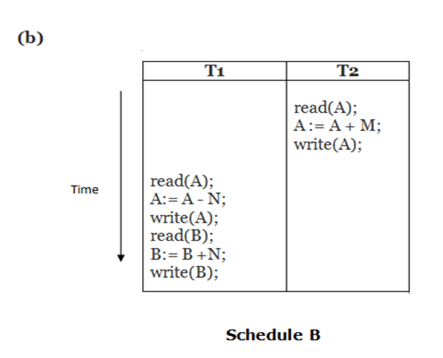
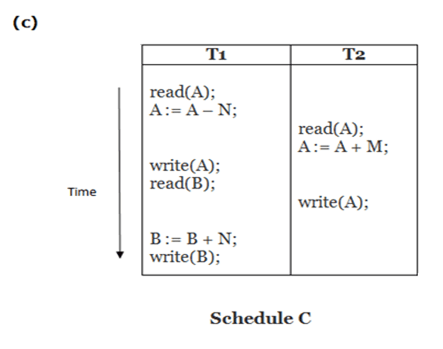
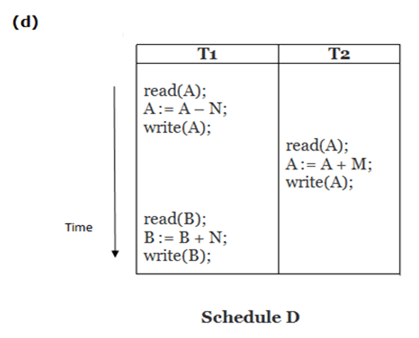
Here, Schedule A and Schedule B are serial schedule. Schedule C and Schedule D are Non-serial schedule.
Next TopicDBMS Testing of Serializability
|
 For Videos Join Our Youtube Channel: Join Now
For Videos Join Our Youtube Channel: Join Now
Feedback
- Send your Feedback to [email protected]
Help Others, Please Share









